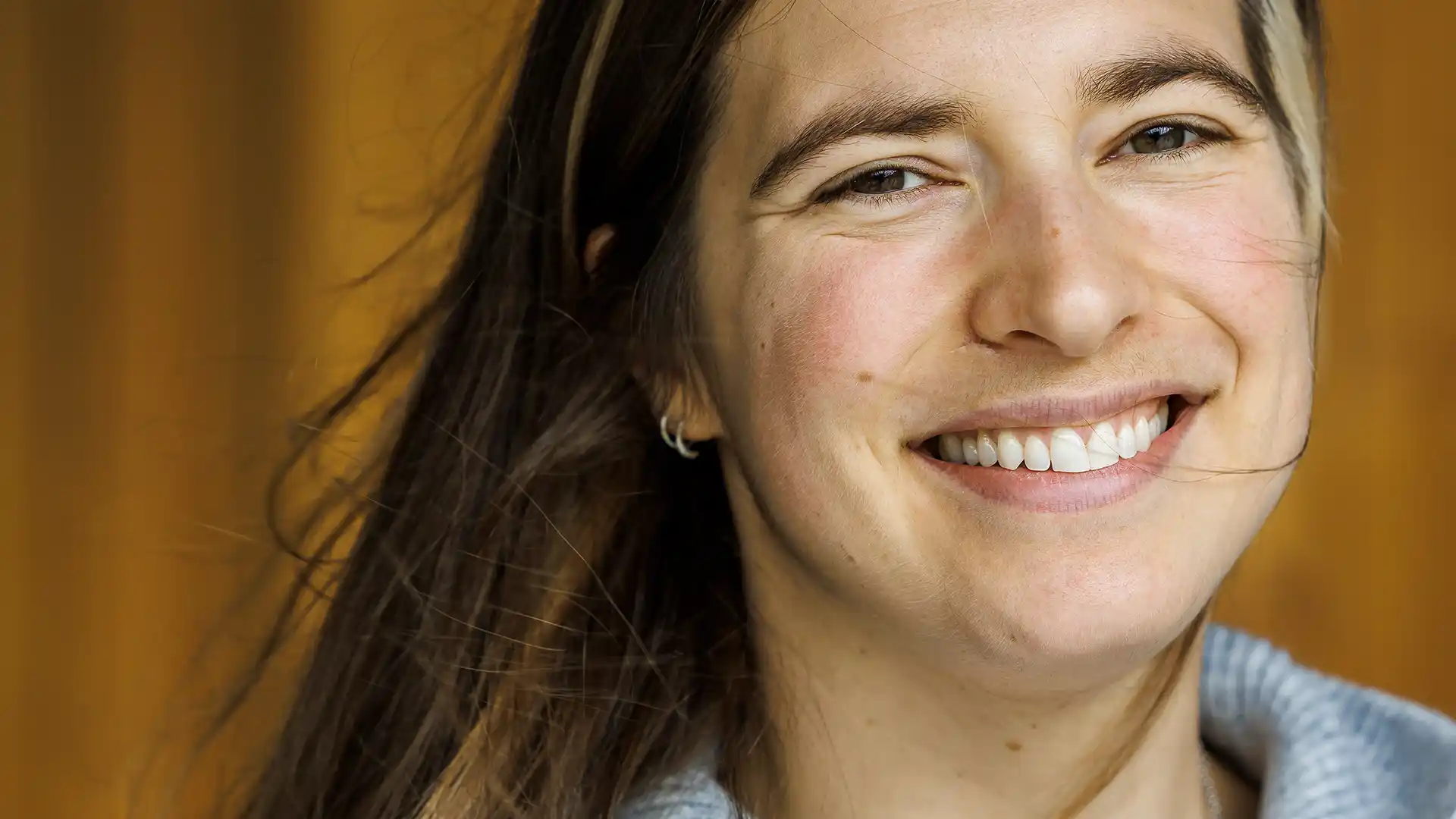“Human happiness must be our common goal”
She thinks we’re discussing AI on the wrong level. And her vision is that everyone should understand how the technology works. Inga Strümke has become a tech celebrity in Norway, much thanks to her bestselling book, “Maskiner som tenker.”
By Ann Axelsson

“Human happiness must be our common goal”
She thinks we’re discussing AI on the wrong level. And her vision is that everyone should understand how the technology works. Inga Strümke has become a tech celebrity in Norway, much thanks to her bestselling book, “Maskiner som tenker.”
By Ann Axelsson
“If you talk about existential risks and appeal to people’s fears, you will get attention,” she says, referring to the dystopian warnings that AI will replace humans and take all jobs.
“These futuristic scenarios are not constructive, and they make it hard to debate the mechanisms behind the technology. What we really need to discuss is how we can develop today’s AI systems according to legislation, our goals, and our values.”
Inga Strümke is an associate professor in AI at the Norwegian University of Science and Technology, NTNU. She’s also a particle physicist, a frequent public speaker, and a best-selling author. “Maskiner som tenker” (“Machines that think”) has become a bestseller in all categories in Norway.
She also spent several years reaching out to Norwegian politicians, trying to get them to take AI issues seriously. That was a challenge. Until ChatGPT.
“Unfortunately, it takes bad news to get them to listen.”
As a scientist in the field, she of course welcomes progress, and she explains that the scientist’s mindset is to think about what is possible and then develop that.
“That mindset has given us X-ray, GPS, the theory of relativity. And atom bombs. As a scientist, you never know how your findings will be used. That’s where society needs to step in.”

Inga Strümke has spent several years reaching out to Norwegian politicians, trying to get them to take AI issues seriously. She was also a speaker at Shibsted’s strategy summit in October 2023.

Inga Strümke has spent several years reaching out to Norwegian politicians, trying to get them to take AI issues seriously. She was also a speaker at Shibsted’s strategy summit in October 2023.
And she believes that ChatGPT is a perfect example of how bad things can go when you share “fun” new technology openly, without having had discussions about its implications.
“I believe we have a serious problem when pupils are now thinking, ‘Why should I write a text if there is technology that can do it better?’ How will we now make young people understand that an idea starts with a thought in your head and that you need to grow and communicate that idea to get other people to understand it? And if you can’t do that, then you won’t be able to function in society.”
That might sound just as dystopian as the future scenarios. But her point is that we can and we must take the lead here in the Nordics and in Europe when it comes to discussing the role we want technology to play.
“If we can’t manage to figure out how to use what we develop here, then we will end up using solutions developed by tech giants that we are unable to influence.”
Impact across the society
And these discussions, she says, should involve experts from across the board – politicians, social scientists, economists, legal experts, ethics, apart from technologists – since the impact will be felt across all parts of society.
This is also why she thinks it’s so important that as many of us as possible understand what this is about and how the technology works. The things she explains in her book.
“My dream is that anyone can read it. That a woman past 80 would read it and think, ‘I can understand this if I want to.’ I have this passion to empower people on this subject. To make them see that they can look after their own interests.”
New class issues
What also has become clear to her, in discussions after writing the book, is that AI can spur a new kind of class issue. That the world might be divided between those who are able to use the technology for their own benefit and those who aren’t.
“Someone said that AI will not take the journalists’ jobs. But journalists who know how to work with AI will take the jobs from the journalists who don’t.”
Inga got into the science world as a physicist. She wanted to understand the universe. Then, when she took her bachelor’s at NTNU, she noticed there was a field of study on artificial intelligence, and curiosity led her that way.
“My driving force is to find out what is possible. The main reason that I’m still in this field is that I see the consequences, and they are extremely complex.”
Even though she thinks about this complexity day and night, she also finds time to use that curiosity and energy on other things – mainly outdoor activities. Her social media is filled with pictures of her mountain biking, climbing and hiking. And those things are important.
“No matter what happens with technology and politics, there is one important thing that we can’t forget: to have a nice life. Human happiness must be our common goal – if not, nothing else matters. That’s very important to me to remember, every day.”
[Sassy_Social_Share]

Ann Axelsson
Senior Product Manager, Strategic Communication, Schibsted
Years in Schibsted: 25
My favourite song the last decade: Paper Doll – John Mayer